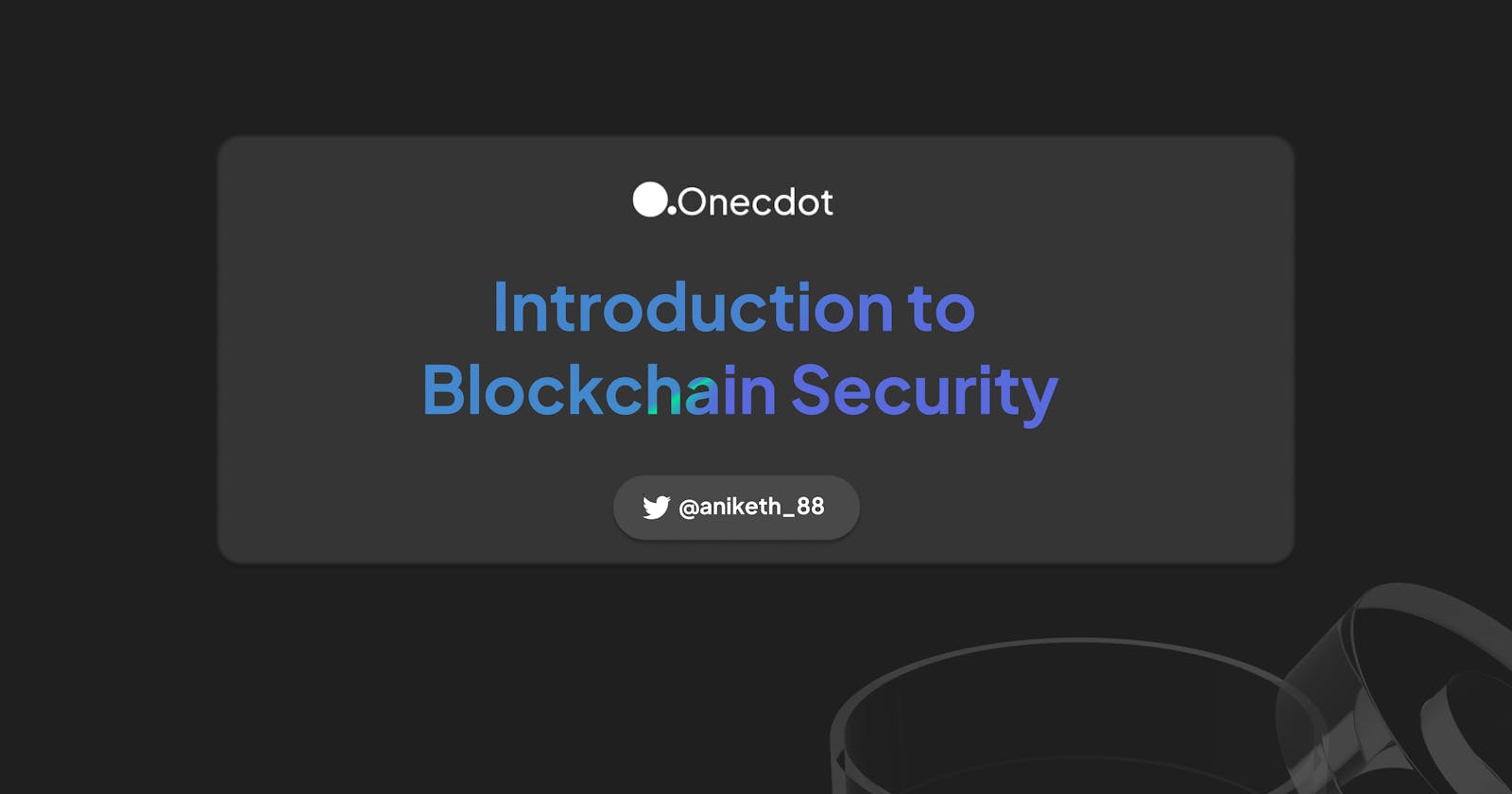Everyone has heard about cybersecurity, right? Now, We know Blockchain Technology is the future but if we have to implement the knowledge of cybersecurity in Blockchain, we have to learn about blockchain security. There aren't enough resources available on this topic but I'll make sure readers at least gets a basic understanding to give a headstart. So, let's begin ->
What is Blockchain Security?
Before deep diving into the main part, let's go through some of the blockchain features which will help us to understand why we need security in this technology.
Blockchain features ->
Anonymity
Decentralisation
Fault tolerance
Immutability
Transparency
Trustless
Blockchain brings several features not available in traditional databases:-
- Decentralisation
- Immutability
But, the problem is that it doesn't apply to every use case and it has potential security vulnerabilities. Blockchain security is achieved via the implementation of cybersecurity frameworks, security testing methodologies, and secure coding practices to protect a blockchain solution from online frauds, breaches, and other cyberattacks. In simple terms, blockchain security is a comprehensive risk assessment procedure done for a blockchain solution or network to ensure its security.
Cyberattacks on blockchain solutions
We’ve seen many instances in the past few years where the blockchain solutions were targeted with data theft and cyberattacks – which makes this technology non-immune to cyberattacks even considering its default strong security factor. Here are a few examples of recent cyberattacks on blockchain:
A VC firm named Decentralized Autonomous Organization (DAO) was a target of a code exploitation attack where it lost more than $60 million worth of Ether cryptocurrency.
Bitcoin worth $72 million was robbed from one of the largest crypto exchanges named Bitfinex due to stolen keys.
Another crypto exchange named Bithumb was recently hacked where the data of 30K users were compromised and $870K worth of bitcoin was stolen in a suspected insider job.
How security differs by blockchain types

How blockchain technology gets attacked by fraudsters
Hackers and fraudsters threaten blockchains in four primary ways: phishing, routing, Sybil and 51% attacks.
Phishing attacks
Phishing is a scamming attempt to attain a user's credentials. Fraudsters send wallet key owners emails designed to look as though they're coming from a legitimate source. The emails ask users for their credentials using fake hyperlinks. Having access to a user's credentials and other sensitive information can result in losses for the user and the blockchain network.
Routing attacks
Blockchains rely on real-time, large data transfers. Hackers can intercept data as it's transferring to internet service providers. In a routing attack, blockchain participants typically can't see the threat, so everything looks normal. However, behind the scenes, fraudsters have extracted confidential data or currencies.
Sybil attacks
In a Sybil attack, hackers create and use many false network identities to flood the network and crash the system. Sybil refers to a famous book character diagnosed with a multiple identity disorder.
51% attacks
Mining requires a vast amount of computing power, especially for large-scale public blockchains. But if a miner, or a group of miners, could rally enough resources, they could attain more than 50% of a blockchain network's mining power. Having more than 50% of the power means having control over the ledger and the ability to manipulate it.
Note: Private blockchains are not vulnerable to 51% attacks.
Blockchain security solutions
Identity and access management
Key management
Data privacy
Secure communication
Smart contract security
Transaction endorsement
Conclusion
Blockchain offers multiple security measures for the solutions that are built on it. However, due to lack of governance and exploitable vulnerabilities makes it not immune to cyberattacks. Therefore, performing a Blockchain security audit or penetration testing becomes important for your business. The sooner you identify blockchain security loopholes the sooner you can fix them and protect your blockchain solutions from hackers.
